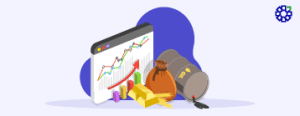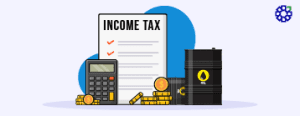Difference Between Equity and Commodity Trading
- 20th August 2025
- 12:00 AM
- 5 min read
The securities market is not limited only to stocks or equities; there are several options available. However, investors often find it difficult to select a proper investment market for themselves. One of them is the commodities market.
This blog evaluates the key differences between commodity and equity trading across 8 parameters. It helps you understand the appropriate market to make sound investments.
What Does Equity Mean?
Equity means the part ownership in a company by buying the company’s shares. Equity investments give you partial ownership of a business, entitling you to a share of its gains and losses.
The primary purpose of investing in equities is to make capital gains and receive dividends. You can trade stocks through stock exchanges like the Bombay Stock Exchange (BSE) and the National Stock Exchange (NSE).
What Does Commodity Mean?
Commodities are agricultural products or raw materials like gold, silver, crude oil, rice, and wheat. Commodity trading refers to making a profit from price fluctuations of these commodities. The commodity prices are influenced by several factors such as inflation, geopolitical conflicts, weather patterns, and more.
There are specific exchanges in India to trade in commodities. Some of them are the Multi-Commodity Exchange (MCX), the Indian Commodity Exchange (ICEX), and the National Multi-Commodity Exchange of India (NMCE).
Key Differences Between Equity and Commodity Trading
| Parameters | Equity | Commodity |
| Type of assets | Buying and selling of shares or company stocks. | Buying and selling contracts of commodities such as oil, wheat, rice, gold, and silver. |
| Price Determination | Factors like business performance, market conditions, and industry trends determine the equity prices. | Supply and demand, geopolitical factors, and weather conditions affect the prices of commodities. |
| Timeframe | Long- and short-term investments, based on your investment objective. | Short-term investments since trades are executed via futures contracts. |
| Returns | Returns can be achieved by earning dividends and a rise in stock prices. | You can earn returns from price fluctuations due to changes in demand and supply in the commodities market. |
| Volatility | Less sensitive to market volatility. | Very sensitive to market volatility. |
| Cost | Costs include brokerage charges, Securities Transaction Tax (STT), Goods and Services Tax (GST), SEBI fees, and margins. | Costs include brokerage charges, SEBI fees, GST, transaction charges, and margin. |
| Trading hours | 9:15 AM to 3:30 PM | 9 AM to 11:30 PM for trading in energy commodities, and 10 AM to 5 PM for trading agricultural commodities. |
| Participants | Arbitrators, hedgers, and speculators | Speculators, producers, manufacturers, and dealers. |
Equity vs Commodity Trading – Which One is Better for You?
You must choose between equity and commodity trading based on your risk tolerance and investment horizon. You must identify which one is best for you over the long run. Equity investments allow buying stocks and holding them for a prolonged time. However, this strategy does not apply to commodity trading.
In addition, commodity training can be done based on the inflation predictions and the supply chain market. This makes it easier to operate. However, in equity investments, you must track the market and company performances to make an informed choice.
If you are new to the securities market and start investing, you can open a free Demat and trading account with the PL Capital Group – Prabhudas Lilladher application. PL allows you to invest in both equities and commodities with its trading platforms.
Things to Consider Before Choosing Between Equity and Commodity
Before you trade in equities and commodities, you must consider the following things:
- Understand your investment goals before making any investments. The commodity market is for short-term investors, whereas the equity market is for those who have a long-term investment horizon.
- You must analyse your risk tolerance levels to understand which market best suits you. Commodities are considered riskier than equities.
- You must understand the supply and demand issues before entering the commodity trading market, since commodities depend on supply and demand interaction. On the other hand, you must focus on company earnings and macroeconomic factors if you want to invest in equities.
Final Thought
Both equities and commodities have unique advantages and disadvantages. Hence, investors need to understand the key differences between commodity and equity trading to choose one between them.
To invest in equities or commodities, open a Demat account or trading account with PL Capital. PL Capital not only guides you with its award-winning research but also offers intraday calls and long-term investing recommendations.
Frequently Asked Questions
1. Which market provides greater diversification opportunities?
The stock market provides greater diversification opportunities across different industries. However, the commodity market enhances portfolio diversification through various types of assets.
2. Is MCX an exchange for stocks or commodities?
The MCX is a leading commodity derivative exchange in India. It has a market share of 97.84% in terms of the value of commodity futures contracts traded on FY25.
3. What are the differences in risk profiles between the commodity and equity markets?
The commodity market’s risk profile is more distinctive. It experiences more volatility due to geopolitical uncertainty, weather conditions, and the balance of supply and demand. Contrarily, equity markets carry inherent risks because they depend on market sentiment and company performance.
4. Are options and futures equities or commodities?
Options and futures are types of derivative trading. They are neither commodities nor equities. Their value is derived from particular underlying assets.





